Related Research Articles

The Liberal Party was one of the two major political parties in the United Kingdom with the opposing Conservative Party in the 19th and early 20th centuries. The party arose from an alliance of Whigs and free trade–supporting Peelites and the reformist Radicals in the 1850s. By the end of the 19th century, it had formed four governments under William Gladstone. Despite being divided over the issue of Irish Home Rule, the party returned to government in 1905 and then won a landslide victory in the following year's general election.
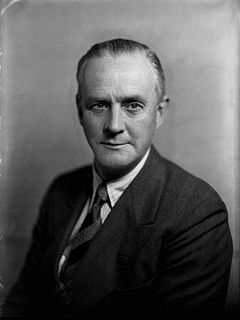
Edward Clement Davies was a Welsh politician and leader of the Liberal Party from 1945 to 1956.
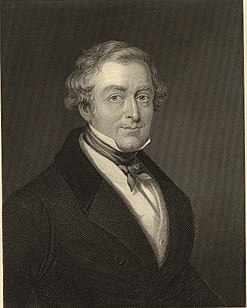
The Conservative Party is the oldest political party in the United Kingdom and arguably the world. The current party was first organised in the 1830s and the name "Conservative" was officially adopted, but the party is still often referred to as the Tory party. The Tories had been a coalition that more often than not formed the government from 1760 until the Reform Act 1832. Modernising reformers said the traditionalistic party of "Throne, Altar and Cottage" was obsolete, but in the face of an expanding electorate 1830s–1860s it held its strength among royalists, devout Anglicans and landlords and their tenants.
The Darwen by-election, 1943 was a by-election held on 15 December 1943 for the British House of Commons constituency of Darwen in Lancashire.
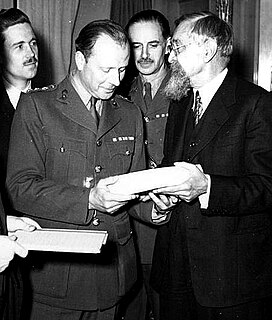
The Chippenham by-election, 1943 was a parliamentary by-election held in England on 24 August 1943 for the British House of Commons constituency of Chippenham in Wiltshire.
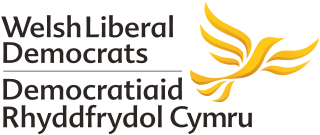
The Welsh Liberal Democrats are a branch of the United Kingdom Liberal Democrats that operates in Wales. The party is led by Jane Dodds, who served as MP for Brecon and Radnorshire from August to December 2019, and MS for Mid and West Wales since May 2021. The party currently has 1 elected member in the Senedd and no Welsh seats in the UK House of Commons, but does have several members of the House of Lords. The party has around 63 local councilors serving in principal authorities.

William Mather Rutherford Pringle was a Liberal Party politician in the United Kingdom who served as a Member of Parliament (MP) from 1910 to 1918 and again from 1922 to 1924.

Emrys Owen Roberts CBE was a Welsh Liberal politician and businessman.

The Westminster Abbey by-election, 1924 was a parliamentary by-election held on 19 March 1924 for the British House of Commons constituency of Westminster Abbey in London. It was notable for the challenge of Winston Churchill to the party system.
The University of Wales by-election, 1943 was a parliamentary by-election held in the United Kingdom between 25 and 29 January 1943 for the House of Commons constituency of University of Wales.
The Welsh Liberal Party was the section of the Liberal Party operating in Wales. From the 1860s until the First World War, a close relationship developed between particular issues relevant to Welsh politics and the Liberal Party. These included land reform, temperance, the expansion and reform of elementary education and, most prominently, the disestablishment of the Church of England in Wales. In the decade after 1886, there emerged another issue in the form of Home Rule as espoused by the Cymru Fydd movement but, for some within the Liberal Party in Wales this was a step too far and it came close to breaking the party.

Charles Philip Fothergill was an English woollen manufacturer and Liberal Party politician.
The Cardiganshire by-election, 1921 was a parliamentary by-election held for the British House of Commons constituency of Cardiganshire on 18 February 1921. The election was important for the bitterness of the contest between the Coalition and Independent factions within the Liberal Party and the deepening of this division within the party as a factor in the long-term decline of Liberalism in Wales.
The Leicester by-election was a Parliamentary by-election. It returned one Member of Parliament (MP) to the House of Commons of the United Kingdom, elected by the first past the post voting system.
The Edinburgh South by-election, 1910 was a parliamentary by-election held for the House of Commons constituency of Edinburgh South in Scotland on 29 April 1910.
The Derby by-election, 1916 was a parliamentary by-election held for the House of Commons constituency of Derby, the county town of Derbyshire on 29 December 1916.

The Bury St Edmunds by-election, 1944 was a parliamentary by-election for the British House of Commons constituency of Bury St Edmunds, Suffolk on 29 February 1944.
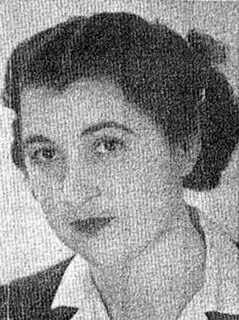
Honor Catherine Mary Balfour, was a British Liberal Party politician and journalist.
The Popular Front in the United Kingdom attempted an alliance between political parties and individuals of the left and centre-left in the late 1930s to come together to challenge the appeasement policies of the National Government led by Neville Chamberlain.

A by-election was held in the UK Parliament constituency of Brecon and Radnorshire on 1 August 2019 after Chris Davies, who had held the seat for the Conservatives since the 2015 general election, was unseated by a recall petition. The by-election was won by Jane Dodds of the Liberal Democrats.
References
- 1 2 Chris Cook, A Short History of the Liberal Party: 1900 - 2001, pp.268-269
- 1 2 3 4 Peter Barberis, Encyclopedia of British and Irish Political Organizations, p.316
- ↑ Henry Pelling, Britain and the Second World War, p.185
- ↑ Jorgen Scott Rasmussen, The Liberal Party: a study of retrenchment and revival, p.15